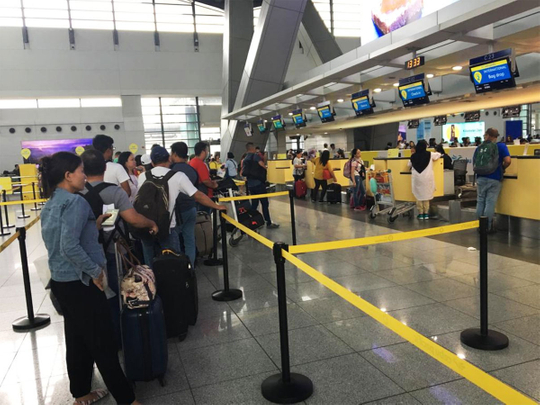
Manila: The Philippine government will impose limits on sending workers abroad in certain skilled labour categories, officials say, in order to prevent a local shortage of workers.
The announcemet comes amid a boom in the country’s construction sector.
According to Department of Labour and Employment (DOLE) Secretary Silvestre Bello III the Philippines badly needs skilled workers such as master electricians, master carpenters, master plumbers and similarly highly experienced and trained labour to build roads, bridges, airports and other similar infrastructures under the so-called “Build, Build, Build,” programme of the current administration.
However this massive construction endeavour could be set back by the lack of available skilled workforce.
Bello said the processing of documents for certain skilled workers intending to work abroad will in the meantime be placed on hold.
“Construction workers are badly needed here in our country that’s why we are slowing down the deployment to address the manpower shortage in the local construction industry and support implementation of the president’s infrastructure programme,” Bello said.
He added that around 800,000 to one million skilled workers in the field of construction, architecture, and engineering are needed up to 2022 to address labour shortage with the country’s construction boom.
The labour chief added that the Philippine Overseas Employment Administration (POEA), the main agency under the DOLE which is in charge of sending Filipino labour abroad, is drafting regulations that will slow down the deployment of construction workers to overseas jobs by as much as 90 per cent.
Jobs mismatch
To prevent a labour shortage in the homefront, the DOLE has urged workers in the specific categories mentioned to consider “local employment” and support the government in the full blast implementation of the Build, Build, Build Programme rather than applying for jobs abroad.
“There is a strong local jobs growth, but vacancies are not filled either because the skilled workers going abroad or the skills of local available workforce do not match the available jobs in the market,” Bello said.
“Slowing down the deployment of construction workers by as much as 90 per cent is not a way of preventing them to choose high-paying jobs overseas, but to inform them of the need for manpower in the local construction sector,” Bello said.
In a speech he gave during an event in Bulacan province last month, President Rodrigo Duterte mentioned that the anticipated lack in skilled manpower is causing the Philippines’ infrastructure-building campaign to lose momentum.
Once a source for skilled labour for the world, including the Middle East, the Philippines is finding itself lacking in workers with specialised competence in certain fields of work.












